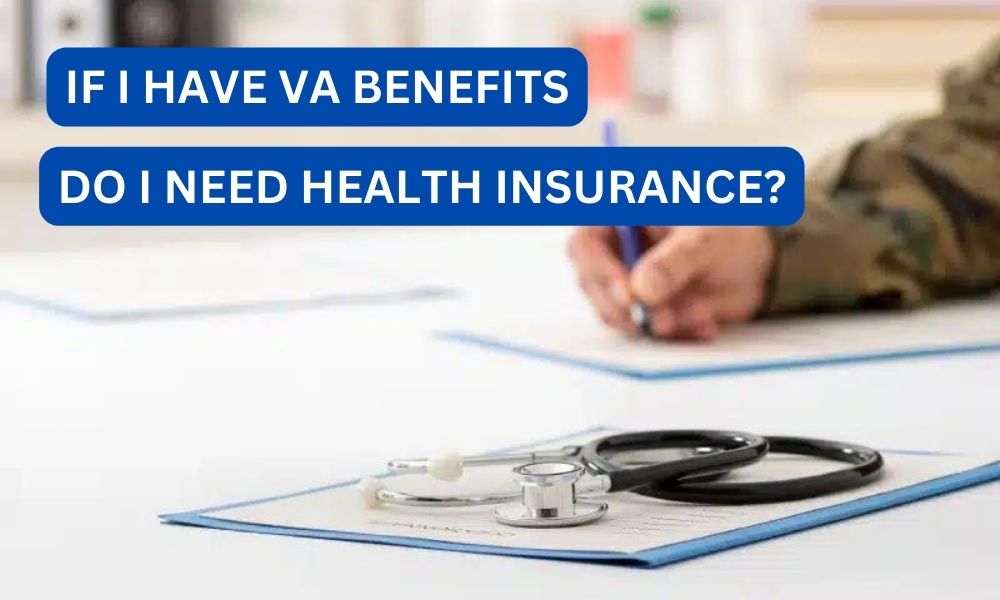As a veteran, you may be wondering if you still need health insurance if you have VA benefits. After all, the Department of Veterans Affairs (VA) provides comprehensive healthcare services to eligible veterans. However, the answer to this question is not a simple yes or no. There are several factors to consider when determining if you need health insurance in addition to your VA benefits. In this article, we will explore the benefits and limitations of VA healthcare and discuss why having additional health insurance may still be necessary for veterans.
Contents
Understanding VA Healthcare Benefits
The VA provides healthcare services to eligible veterans through its network of medical centers, clinics, and community-based outpatient clinics. These services include preventive care, primary care, specialty care, mental health care, and prescription medications. The VA also offers long-term care, rehabilitation, and home-based care for veterans with disabilities or chronic conditions.
One of the main advantages of VA healthcare is that it is free for eligible veterans. This means that you do not have to pay any premiums, deductibles, or copayments for the services you receive. This can be a significant cost-saving benefit, especially for veterans who may have limited income or resources.
Read:Do friends with benefits talk everyday?Another advantage of VA healthcare is that it is tailored to the unique needs of veterans. The VA has specialized programs and services for veterans who have served in combat, have disabilities, or have been exposed to environmental hazards during their service. This specialized care can be crucial for veterans who may have specific healthcare needs related to their military service.
Additionally, the VA has a nationwide network of healthcare facilities, making it easier for veterans to access care no matter where they live. The VA also offers telehealth services, which allow veterans to receive care remotely through video conferencing or phone calls. This can be especially beneficial for veterans who live in rural areas or have mobility issues.
Limitations of VA Healthcare
While VA healthcare offers many benefits, it also has some limitations that may make having additional health insurance necessary. One of the main limitations is that VA healthcare is only available to eligible veterans. To be eligible for VA healthcare, you must have served in the military and have been discharged under conditions other than dishonorable. You must also meet certain income and asset requirements.
Another limitation of VA healthcare is that it may not cover all your healthcare needs. The VA has a list of priority groups that determine the level of benefits you are eligible for. Veterans in higher priority groups may receive more comprehensive benefits, while those in lower priority groups may have limited coverage. Additionally, the VA may not cover certain services, such as dental care, vision care, and long-term care, unless you have a service-connected disability.
Read:What can disqualify you from unemployment benefits in texasFurthermore, the VA may have long wait times for appointments and limited availability of specialists. This can be a significant issue for veterans who need immediate or specialized care. In some cases, veterans may have to wait months to see a specialist or may have to travel long distances to receive care.
Why Having Additional Health Insurance May Be Necessary
Based on the limitations of VA healthcare, it is clear that having additional health insurance may still be necessary for veterans. Here are some reasons why:
- Coverage for Non-VA Services: As mentioned earlier, the VA may not cover certain services, such as dental care, vision care, and long-term care. Having additional health insurance can help cover these services and prevent you from having to pay out-of-pocket.
- Access to a Wider Network of Providers: While the VA has a nationwide network of healthcare facilities, it may not have the same level of coverage as private health insurance plans. Having additional health insurance can give you access to a wider network of providers, including specialists, in your area.
- Reduced Wait Times: With additional health insurance, you may be able to see a specialist or receive care more quickly than through the VA. This can be crucial for veterans who need immediate or specialized care.
- Protection Against Unexpected Medical Expenses: Even with VA healthcare, you may still be responsible for copayments, deductibles, and other out-of-pocket costs. Having additional health insurance can provide financial protection against unexpected medical expenses.
Examples of Veterans Who May Benefit from Additional Health Insurance
While all veterans can benefit from having additional health insurance, there are some specific cases where it may be especially beneficial. Here are a few examples:
Read:Are survivor benefits taxable?- Veterans with Dependents: If you have dependents, such as a spouse or children, they may not be eligible for VA healthcare. Having additional health insurance can ensure that your family members have access to healthcare services.
- Veterans with Pre-Existing Conditions: The VA may not cover pre-existing conditions unless they are service-connected. If you have a pre-existing condition, having additional health insurance can help cover the costs of treatment.
- Veterans Who Travel Frequently: If you travel frequently, having additional health insurance can provide coverage outside of the VA network. This can be especially beneficial if you need medical care while traveling abroad.
How to Choose the Right Health Insurance Plan
If you have decided that having additional health insurance is necessary for you, it is essential to choose the right plan. Here are some factors to consider when selecting a health insurance plan:
- Coverage and Benefits: Look for a plan that covers the services you need, such as dental care, vision care, and prescription medications. Also, consider the level of coverage and any out-of-pocket costs you may have to pay.
- Network of Providers: Make sure the plan has a network of providers in your area, including specialists, that you can access easily.
- Cost: Consider the monthly premiums, deductibles, and copayments of the plan. Make sure it fits within your budget and provides good value for the coverage it offers.
- Customer Service: Look for a plan with good customer service and support. This can be crucial when dealing with any issues or questions about your coverage.
Conclusion:
In conclusion, while VA healthcare offers many benefits to eligible veterans, it may not cover all your healthcare needs. Having additional health insurance can provide coverage for services not covered by the VA, give you access to a wider network of providers, and protect you against unexpected medical expenses. If you are a veteran, it is essential to carefully consider your healthcare needs and choose a health insurance plan that best meets those needs. By doing so, you can ensure that you and your family have access to the healthcare services you need.








